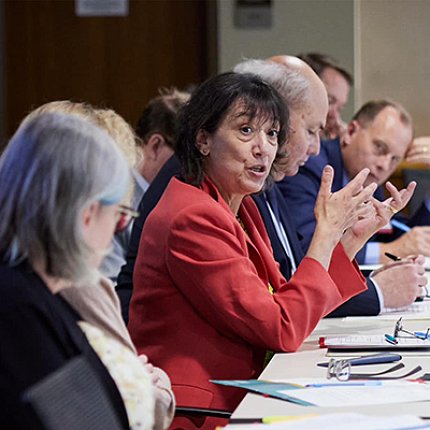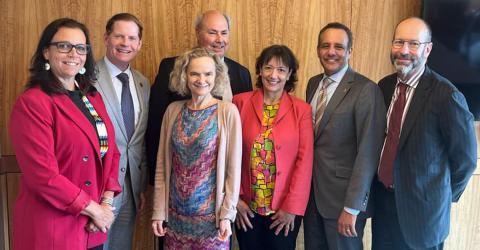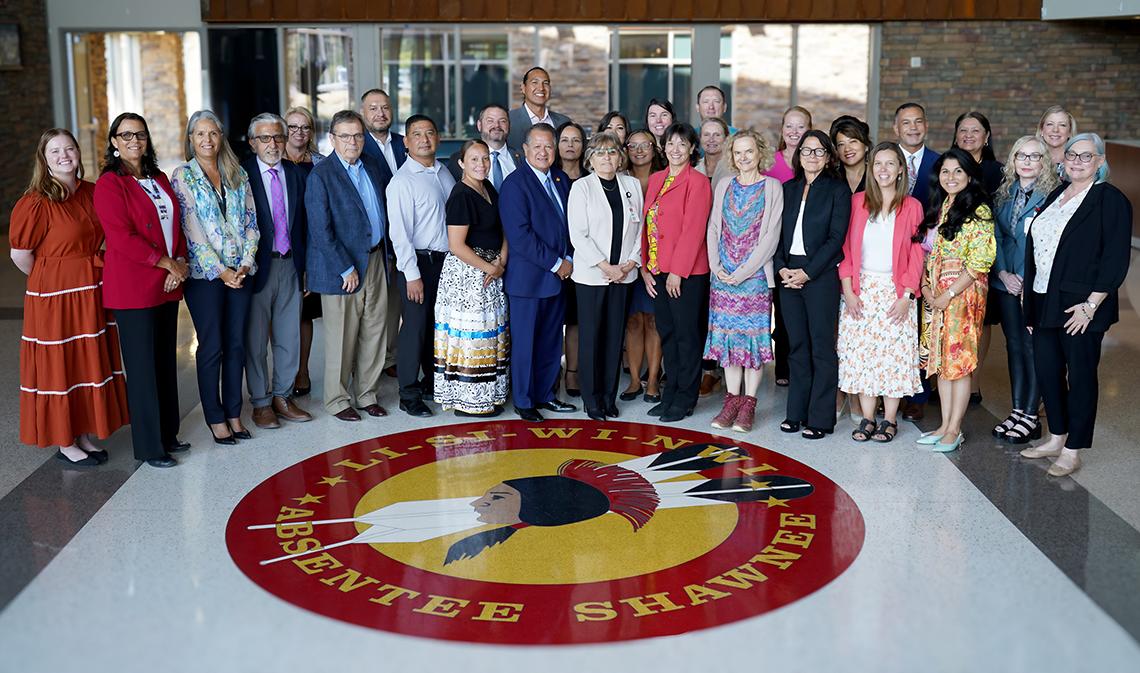Bertagnolli Visits Oklahoma to Discuss Research Collaborations

NIH Director Dr. Monica Bertagnolli visited the University of Oklahoma (OU) on Aug. 21 for a series of meetings with OU leadership. She came to learn how OU researchers are utilizing NIH funding to better understand human disease and discover new methods for diagnostics and treatment.
During the visit, Bertagnolli—accompanied by National Institute on Drug Abuse Director Dr. Nora Volkow, Dr. Karina Walters, director of NIH’s Tribal Health Research Office, and Dr. Susan Gregurick, associate director of NIH’s Office of Data Science—toured OU’s Stephenson Cancer Center and discussed ways data science can revolutionize health research.
Bertagnolli and the NIH team also visited the Absentee Shawnee Tribe Health Center in Norman. There, they met with experts who are leading research to address overdose, substance use and pain, supported by NIH’s Native Collective Research Effort to Enhance Wellness (N CREW) program.

Photo: OU
NIH’s Helping to End Addiction Long-Term® (HEAL) Initiative seeks to enhance wellness among Native Americans by advancing research on overdose, substance use, pain and mental health. In August, NIH launched N CREW in direct response to priorities identified by Tribes and Native American communities.
Despite the inherent strengths in Tribal communities, Native American communities face unique health disparities related to the opioid crisis. In recent years, for instance, overdose death rates have been highest among American Indian and Alaska Native people. To create sustainable solutions, research shaped by Native communities is essential for enhancing effective, culturally grounded public health interventions.
In a recent statement, Volkow said, “As we look for ways to best respond to the overdose crisis across the country, it is crucial to recognize that Native American communities have the best perspective for developing prevention and therapeutic interventions consistent with their traditions and needs. This program will facilitate research that is led by Native American communities, for Native American communities.”

Photo: Brent Shields/Little Axe Health Center
The first phase of the program will support projects to plan, develop and pilot community-driven research and data improvement projects to address substance use and pain. In this phase, NIH will also support the development of a Native Research Resource Network to provide comprehensive training, resources and real-time support to N CREW participants. Areas to be addressed include governance, community safety, community services, socioeconomics, treatment and health service delivery.
The N CREW Program is led by NIDA, the National Institute of Neurological Disorders and Stroke (NINDS) and the National Center for Advancing Translational Sciences (NCATS).
